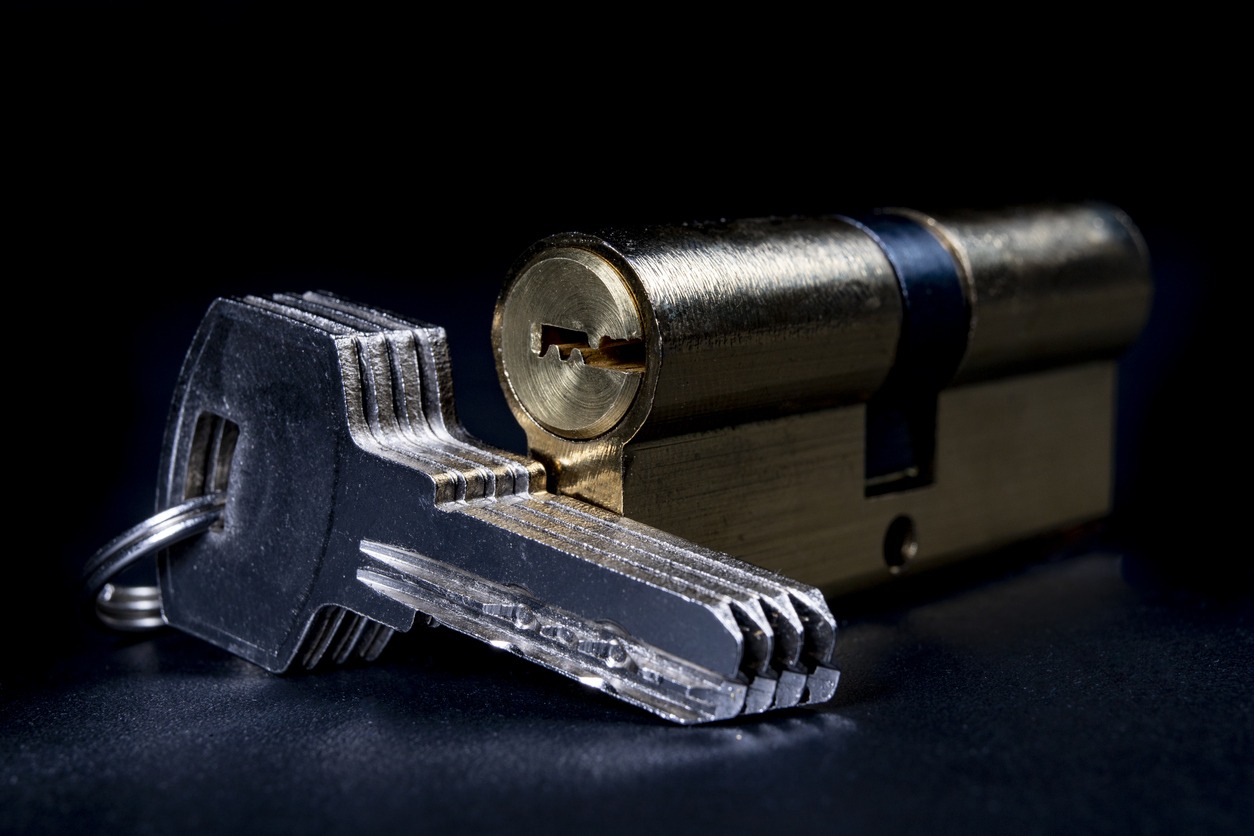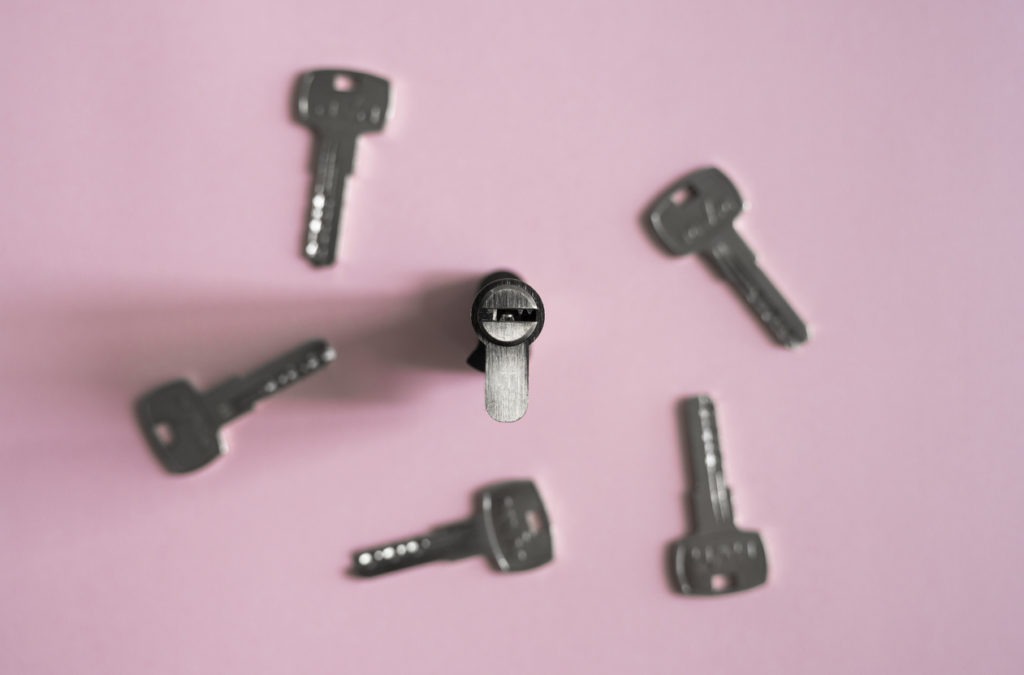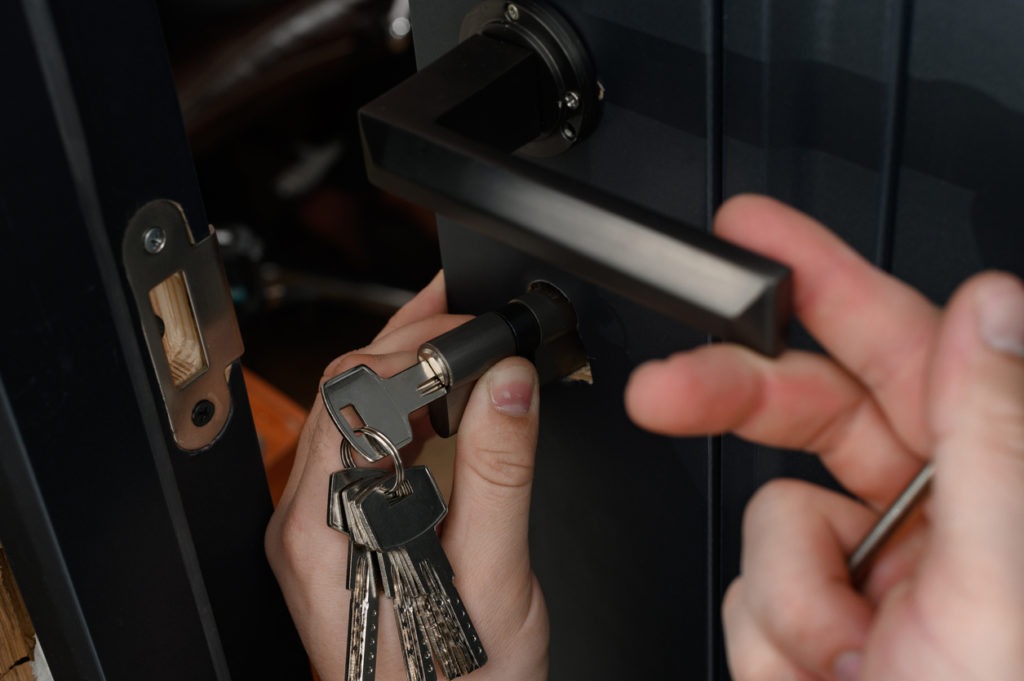In the world with many types of locks, there are a few key pieces of information that you need to know.
Security has become a major concern these days. Burglars used to break down locks using simple techniques, but now they know the modern techniques and loopholes that can be used to break them. For this reason, security systems have been updated with high-quality complex key cores that are not easy to crack.
The core of a lock is the part that keeps it from opening. It’s called a core because it’s shaped like a donut, and if you think about it, the word “core” means “center.” So while the key is the part of a lock that opens it, the core is what keeps the door shut and impenetrable.
In this article, we’ll talk about some types of cores and their general uses.
What are Key Cores?
What are the key cores of a lock? You might think the key core is the lock part that keeps the door locked. But if you think about it, a lock has two parts: the cylinder and the tumblers. The cylinder is where you insert your key and turn it to open or close your door. It’s also where you put your key when you want to change its shape (to add or remove pins) so that it can open more doors.
The tumblers keep your door closed until you turn them with your key and open it. They’re shaped like little cylinders with grooves on their sides so that they can be pushed up by a pin from below (or pulled down by one above). Each groove has to line up with its corresponding pin to work properly.
The more complex a key core is, the more secure it will be. A simple key core can be broken into easily, so many people are looking for a better solution: a complex interchangeable key core.
Things to Consider Before Purchasing a Key Core
There are several factors to consider when buying an IC core for your building or house. Factors like small size, price, and durability are important. Still, they shouldn’t be the only things you consider when buying a key core.
Type of Key Core
Standard and interchangeable (IC) keys are two basic kinds of key cores. They vary in cost and convenience.
Standard Core
Standard cores are the most common type found in households and small businesses. They’re quick to change, taking about 10-15 minutes per lock. A key cylinder is fixed or immediately linked to a standard lock-in core.
Although the up-front cost may be lower, the long-term cost will be higher if you rekey your locks with interchangeable or IC cores. Rekeying a standard core requires professional help—it isn’t easy to do on your own.
It can be done on your own, but it requires a lot of effort. To rekey or replace the core, the lock must be disassembled halfway. This entire process is best left to a professional. Without dismantling the lock halfway, standard cores cannot be rekeyed.
Interchangeable Core
An interchangeable core (IC) is a sure winner because you can rekey the lock yourself! You use a control key to extract and reinstall the core, and a lock change may be completed in only a few seconds if you have the keys for both the old and new cylinders. A control key is used to enter an interchangeable core (which resembles figure eight) into a cylinder.
This quick and easy process can be done in 30 seconds. While interchangeable cores may cost more upfront, they make sense in the long run if you need to rekey your facility. You’ll only need to pay for them once, and then you can use them again next time—saving you money on a professional locksmith.
Interchangeable cores come in two sizes—a smaller figure eight-core for small format hardware and a larger figure eight-core for large format hardware. Both elements perform similar functions but cannot be swapped between the formats. A small format IC core cannot be inserted in large format hardware, and vice versa.
Compatibility
It would be best if you also thought about hardware compliance because not all cores are compatible with every piece of hardware.
If you purchase an IC core, ensure it is compatible with your hardware. A small figure IC core would be for a small format compatible hardware, and a large figure IC core would be for a large design compatible core. Also, if a lever is set in the standard cylinder, you can not install an IC core in it.
Key Duplication
Make sure the key core you buy is not easy to duplicate. We advise restricted, serialized key cores that can’t be duplicated. This will help in authorized duplication by intruders and add an extra layer of security to your system.
Serialized core means the keys are personalized for a specific institution. Therefore, if someone from outside tries to duplicate it, the hardware detects it as foreign.
Master Key Systems
If you want to add multiple access levels to your institution, get a key core that allows master key access. As an added bonus, you can use “rekeyable” locks with master keys for extra convenience. This means user keys are unaffected when “rekeyable” locks are rekeyed at the master key level.
If a master key is lost, stolen, or damaged, you can change the locks using a step-change key that’s linked with the lock associated with the lost, stolen, or damaged key. Using this method, you can prevent the trouble of sending new keys to each user. However, you will have to give users new master keys.
Cost
A standard IC core will suffice if you have a small institution with just a few locks. The upfront cost is low, and you will have a tiny cost associated with hiring a professional if the locks need changing. However, suppose you have a larger institution where high security is required with constant rekeying. In that case, we advise you to get IC cores. If your institution has a lot of security issues and you want to save money on locksmith services, consider investing in IC cores. They may be costly upfront but will save you lots of money in the long run as you can do them yourself.
Patented Cores
For the best security, go for lock cores that are patented. Patented systems offer high-grade protection from unauthorized duplication. Besides, such systems perform better than their non-patented or copied counterparts.
When should I change my lock’s key core?
Changing your locks’ key core is a great way to ensure your home is safe. If you’ve been thinking about it, here are some things to keep in mind:
- Changing your key core is a good idea. If you don’t change it, there’s a chance that someone could break into your house by getting ahold of an old key core and duplicating it. This is especially important when you move into a new house.
- You should always use the best quality locks for your home. This will make it harder for burglars to break in by making them work harder to pick the lock or break in through another means.
- If you’re unsure what kind of lock would be best for you, talk with a local locksmith expert. They can help you determine what kind of lock will work best for your needs and budget so you can feel safe in your home!
Also, if you have been experiencing some issues with your lock’s key core, then here are some things to look out for:
- Make sure that the screws are not loose. You will need to tighten them up if they are loose before continuing with any other steps.
- Check if there is any debris in the keyhole. If debris is in the keyhole, you must clean it before continuing with other steps.
- Make sure that all the pins are working properly by using a tension wrench or screwdriver and turning each pin one by one until it stops turning freely. If any pin does not turn freely, you will need to replace that pin with a new one before continuing with any other steps.
Conclusion
In this article, we’ve discussed the key core of a lock. We’ve learned how it works, what it does and how to select the right one for your situation. The key core is important, but it’s not the only thing you should consider. It’s also important to ensure that the lock is well-made and durable.
Now you know what to look for in a lock, so go out and get your hands on one today!


